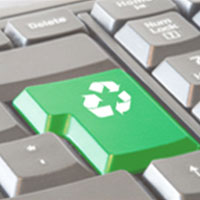Computer Waste is Becoming a Growing Problem
Chances are that most computer waste would end up in landfills if it were not for the WEEE directives implemented in the UK. These directives specify recycling and proper disposal of old electrical appliances that have hazardous gasses like refrigerators, freezers or air conditioning units, but they also govern recycling and disposal of electronics, including […]
Computer Waste is Becoming a Growing Problem Read More »
Chances are that most computer waste would end up in landfills if it were not for the WEEE directives implemented in the UK. These directives specify recycling and proper disposal of old electrical appliances that have hazardous gasses like refrigerators, freezers or air conditioning units, but they also govern recycling and disposal of electronics, including

